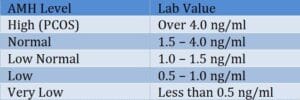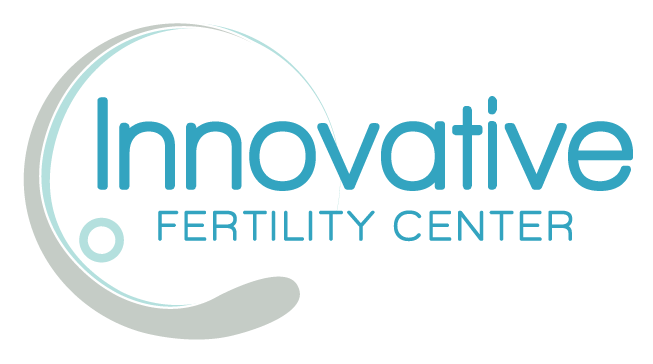AMH Fertility Testing
AMH Testing at Innovative Fertility Center as a Predictor of Future Fertility Potential
The ovaries secrete a hormone called AMH, or anti-mullerian hormone, that provides your fertility specialist clues about the remaining eggs stored in the ovaries. Dr. Mark Rispler or Dr. Joshua J. Berger may order AMH testing to investigate ovarian reserve if you have signs of premature menopause, or if you are over 35 and worried about declining fertility.
Granulosa cells in the ovarian follicles produce AMH in the earliest stages of egg development, before we can see them on ultrasound. Detectable levels of AMH are present at the primordial stage (i.e. the earliest stage of development) and peak in the small antral growth stages. Once follicles grow large enough to release a mature egg, during the ovulatory stage of reproduction, AMH is no longer present in laboratory test results.
AMH Appears in the Earliest Stages of Egg Development:
- Primordial Stage
- Small, Preantral
- Large, Preantral
- Antral, < 4 mm
- Antral, > 4 mm
- Preovulatory Stage
- Ovulated Egg
- Fertilized Egg
- Embryo, Pregnancy
AMH is associated with immature eggs awaiting growth required for ovulation, and therefore synching the hormone test to ovulation is not necessary. Unlike other fertility tests, we can order AMH testing at any stage in a woman’s menstrual cycle.
About AMH and Female Infertility
A woman is born with a finite supply of eggs, which are stored in the ovaries. Over time and especially after age 35, the quality and quantity of these eggs decline. AMH testing provides your fertility specialist with an estimate about egg quantity, or pool of immature egg-containing follicles remaining in the ovaries.
Blood testing for AMH levels is combined with other fertility testing for thorough assessment:
- Serial sonograms throughout a menstrual cycle to monitor antral follicle growth
- Blood work that measures other follicle stimulating hormone (FSH) levels (typically on Day 3 of the menstrual cycle)
- Blood test for estradial levels (typically on Day 3 of the menstrual cycle)
Interpreting AMH Levels during Female Fertility Testing
AMH testing is relatively new, and reproductive endocrinologists interpret results without placing too much weight on minute differences between the cutoffs between categories (normal AMH versus low AMH, for example).

As we learn more about the AMH effect on female fertility, the table to the left may be adjusted by fertility specialists to reflect what is considered “normal”.
In general, we can rely on these findings in reproductive medicine:
Women with high AMH may suffer from polycystic ovarian syndrome.
Women with low AMH levels trend toward premature menopause or menopause. This indicator can also predict a poor response to ovarian stimulation prior to IVF in women over 35.
AMH testing can help gauge how maternal age affects fertility and provide our team with information so that we can create an effective and proactive fertility treatment plan. If you would like to learn more about AMH testing as a fertility predictor, contact us at Innovative Fertility Center
